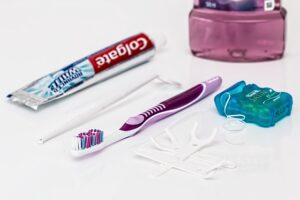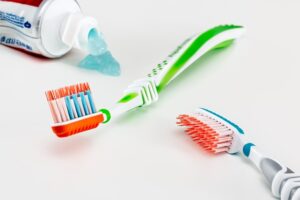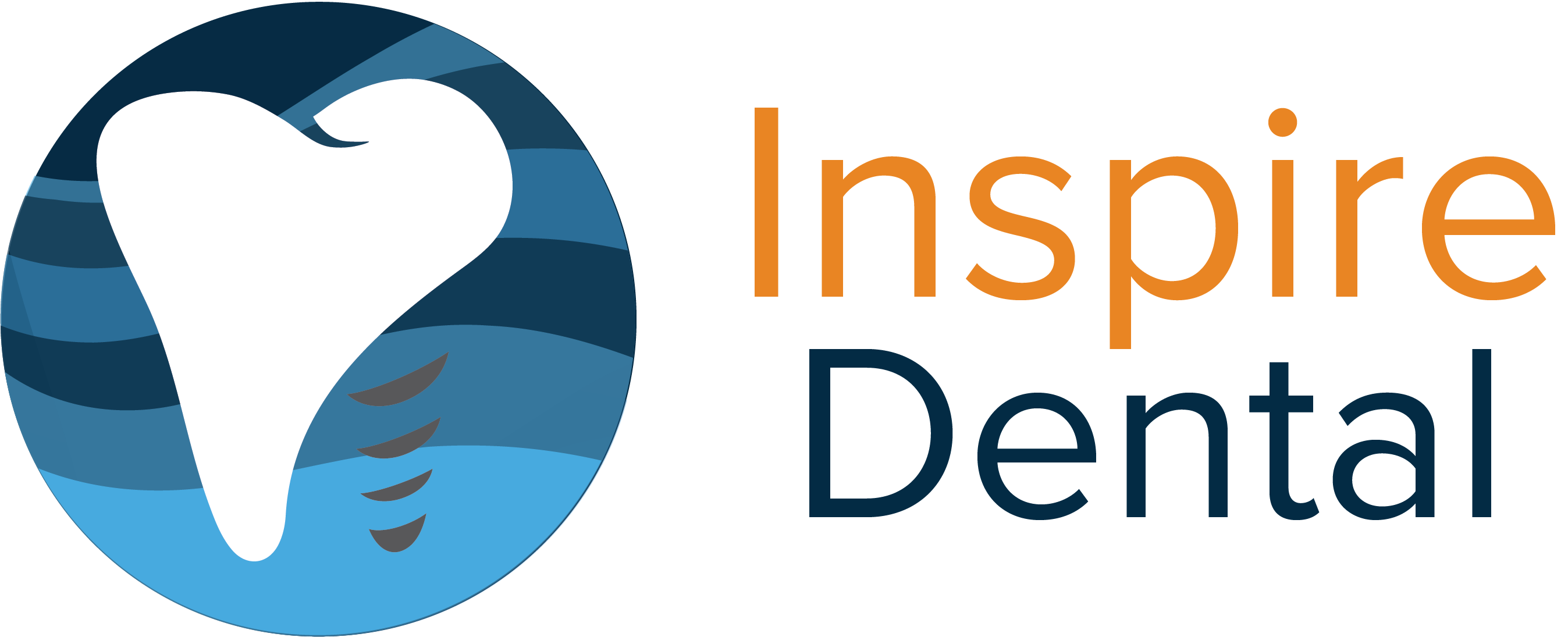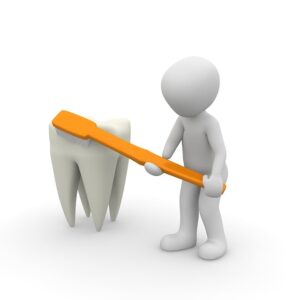Dental cleanings and hygiene are vital for maintaining optimal oral health. Regular dental cleanings remove plaque and tartar buildup, prevent cavities, and help keep your gums healthy. By prioritizing good oral hygiene habits and visiting your dentist for routine cleanings, you can protect your smile and overall well-being.
Key takeaways
- Dental cleanings remove plaque and tartar that regular brushing can’t eliminate
- Professional cleanings help prevent cavities, gum disease, and bad breath
- Most people should get dental cleanings every 6 months
- Good at-home oral hygiene is essential between professional cleanings
- Dental cleanings can detect early signs of oral health issues
- Regular cleanings can save money by preventing costly dental problems
What Happens During Dental Cleanings and Hygiene?
A dental cleaning is a thorough process that involves several steps to ensure your teeth and gums are clean and healthy. When you visit your dentist in Ottumwa for a cleaning, you can expect the following:
Examination
Your dental hygienist will start by examining your mouth for any obvious issues. They’ll look for signs of decay, gum inflammation, or other problems that may need attention.
Removing plaque and tartar
Using special tools, the hygienist will carefully remove plaque and tartar (hardened plaque) from your teeth. This process, called scaling, is essential because these substances can’t be removed by regular brushing at home.
Polishing
After scaling, your teeth will be polished using a gritty toothpaste-like substance. This helps remove any remaining stains and leaves your teeth feeling smooth and clean.
Flossing
The hygienist will floss between your teeth to remove any leftover debris and check for any areas where your gums might bleed easily.
Fluoride treatment
Many dental cleanings finish with a fluoride treatment. This helps strengthen your tooth enamel and protect against decay.
The Importance of Regular Dental Cleanings

Getting your teeth cleaned regularly is more than just about having a bright smile. It’s a crucial part of maintaining your oral health and preventing serious issues down the line.
Preventing cavities
Regular cleanings remove the buildup of plaque and tartar that can lead to tooth decay. By keeping your teeth clean, you’re less likely to develop cavities that require fillings or more extensive treatments.
Protecting your gums
Gum disease is a common but serious condition that can lead to tooth loss if left untreated. Professional cleanings help remove the bacteria that cause gum inflammation and infection.
Early detection of oral health issues
During your cleaning, your dentist or hygienist can spot early signs of problems like cavities, gum disease, or even oral cancer. Catching these issues early makes them much easier to treat.
Freshening your breath
Bad breath is often caused by bacteria in the mouth. A thorough cleaning can help eliminate these bacteria and leave your breath fresher.
Boosting overall health
There’s a strong link between oral health and overall health. Regular dental cleanings can help reduce your risk of certain health conditions, including heart disease and diabetes.
How Often Should You Get Dental Cleanings?

The frequency of dental cleanings can vary depending on your individual needs and oral health status. However, here are some general guidelines:
Twice a year for most people
Most dentists recommend getting a professional cleaning every six months. This schedule helps maintain good oral health for the average person with no significant dental issues.
More frequent cleanings for some
Some people may need more frequent cleanings. This might include:
- People with a history of gum disease
- Those with a weakened immune system
- Smokers
- Pregnant women
- People with certain medical conditions like diabetes
Less frequent cleanings for some
In rare cases, people with excellent oral hygiene and no history of dental problems might only need cleaning once a year. However, this should only be done under the guidance of your dentist.
At-home Oral Hygiene Between Cleanings
While professional cleanings are essential, your daily oral hygiene routine is just as important. Here are some tips for maintaining good oral health between dental visits:
Brushing technique
Brush your teeth at least twice a day using a soft-bristled toothbrush. Use gentle, circular motions and be sure to brush all surfaces of your teeth, including the backs.
Flossing daily
Floss at least once a day to remove food particles and plaque from between your teeth where your toothbrush can’t reach.
Using mouthwash
An antimicrobial mouthwash can help reduce plaque and freshen your breath. Use it after brushing and flossing for best results.
Eating a tooth-friendly diet
Limit sugary and acidic foods and drinks, which can erode your tooth enamel. Instead, eat plenty of crunchy fruits and vegetables, which can help clean your teeth naturally.
Staying hydrated
Drinking plenty of water helps wash away food particles and bacteria from your mouth throughout the day.
Special Considerations for Dental Cleanings

While dental cleanings are generally straightforward, there are some special situations to be aware of:
Dental cleanings during pregnancy
Pregnant women should continue to get regular dental cleanings. In fact, hormonal changes during pregnancy can increase the risk of gum disease, making cleanings even more important.
Cleanings with dental work
If you have dental implants, crowns, or bridges, your hygienist will use special tools and techniques to clean around these restorations without damaging them.
Cleanings for people with sensitive teeth
If you have sensitive teeth, let your hygienist know. They can use special desensitizing pastes or techniques to make your cleaning more comfortable.
Deep cleanings for gum disease
If you have signs of gum disease, your dentist might recommend a deep cleaning, also known as scaling and root planing. This is a more intensive procedure that cleans below the gum line.
The cost of dental cleanings
The cost of dental cleanings can vary depending on your location and whether you have dental insurance. Here’s a breakdown of what you might expect:
| Type of Cleaning | Average Cost Without Insurance | Average Cost With Insurance |
|---|---|---|
| Regular Cleaning | $75 – $200 | $0 – $50 copay |
| Deep Cleaning | $150 – $350 per quadrant | $50 – $100 copay |
Keep in mind that these are average costs and can vary. Many dental insurance plans cover two regular cleanings per year at 100%, making them an excellent preventive care option.
The Link Between Dental Cleanings and Overall Health
Regular dental cleanings don’t just benefit your mouth – they can have a positive impact on your overall health as well. Here’s how:
| Health Condition | How Dental Cleanings Help |
|---|---|
| Heart Disease | Reduces inflammation-causing bacteria in the mouth |
| Diabetes | Helps control blood sugar levels |
| Respiratory Infections | Reduces harmful bacteria that can be inhaled |
| Pregnancy Complications | Lowers risk of premature birth and low birth weight |
By maintaining good oral health through regular cleanings, you’re taking an important step in protecting your overall health.
Common myths about dental cleanings
There are several misconceptions about dental cleanings that might prevent people from getting the care they need. Let’s clear up some of these myths:
- Myth: Cleanings are painful
- Truth: Most people find cleanings to be painless or only mildly uncomfortable
- Myth: You only need cleanings if you have visible problems
- Truth: Regular cleanings prevent problems from developing in the first place
- Myth: Cleanings can damage your tooth enamel
- Truth: Professional cleanings are safe and do not harm healthy tooth enamel
- Myth: You don’t need cleanings if you brush and floss regularly
- Truth: Even with excellent home care, professional cleanings are still necessary to remove tartar buildup
Preparing for your Dental Cleaning
To make the most of your dental cleaning appointment, consider these tips:
- Don’t skip brushing and flossing beforehand
- Arrive a few minutes early to fill out any necessary paperwork
- Bring a list of any medications you’re taking
- If you have dental anxiety, let the office know in advance
- Be prepared to discuss any changes in your oral health since your last visit
After your Dental Cleaning
Once your cleaning is complete, you might experience some temporary effects:
Sensitivity
It’s normal to have some tooth sensitivity for a day or two after your cleaning. This should resolve quickly.
Clean feeling
Your teeth will likely feel smoother and cleaner than usual. This is a good reminder of how your teeth should feel with good oral hygiene.
Bleeding gums
If your gums bled during the cleaning, they might be a bit tender afterward. This should improve with good home care.
Stain removal
You might notice that some surface stains have been removed, making your teeth appear brighter.
Choosing a Dental Provider for Cleanings
When selecting a dentist for your regular cleanings, consider these factors:
Location and hours
Choose a dental office that’s conveniently located and has hours that work with your schedule.
Insurance acceptance
If you have dental insurance, make sure the provider is in-network to maximize your benefits.
Technology and techniques
Look for a dental office that uses modern technology and up-to-date cleaning techniques.
Patient reviews
Read reviews from other patients to get an idea of the quality of care and patient experience.
Communication style
Choose a dentist and hygienist who communicates clearly and makes you feel comfortable asking questions.
The Role of Dental Hygienists
Dental hygienists play a crucial role in your oral health care. They are specially trained professionals who:
Perform cleanings
Hygienists are experts at removing plaque and tartar and polishing your teeth.
Educate patients
They can provide valuable information about proper brushing and flossing techniques, as well as advice on maintaining good oral health.
Screen for oral health issues
Hygienists are often the first to spot signs of decay, gum disease, or other oral health problems.
Take dental x-rays
Many hygienists are trained to take and interpret dental X-rays, which are important for detecting issues that aren’t visible to the naked eye.
Conclusion
Dental cleanings and hygiene are fundamental to maintaining a healthy smile and supporting overall health. By getting regular cleanings and practicing good oral hygiene at home, you can prevent many dental problems and enjoy the benefits of a healthy mouth for years to come.
Remember, your oral health is an important part of your overall well-being, so make dental cleanings a priority in your healthcare routine. For more information, you can visit our website or contact us.

